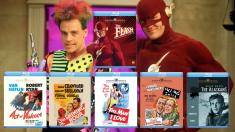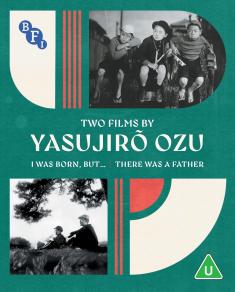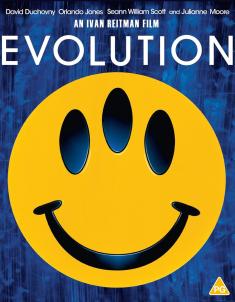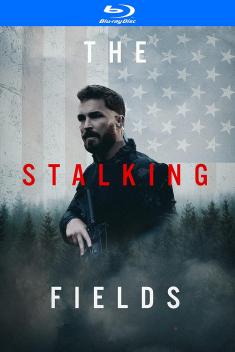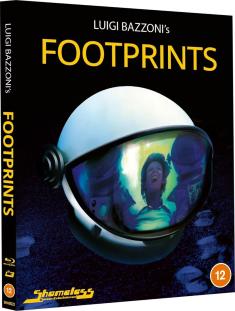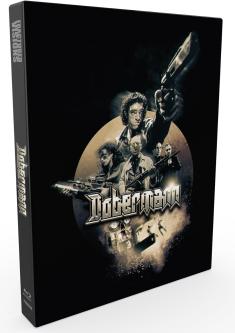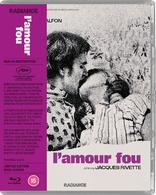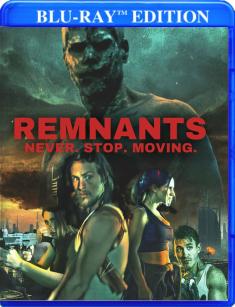Playtime
Overview -Jacques Tati’s gloriously choreographed, nearly wordless comedies about confusion in the age of technology reached their creative apex with Playtime. For this monumental achievement, a nearly three-year-long, bank-breaking production, Tati again thrust the endearingly clumsy, resolutely old-fashioned Monsieur Hulot, along with a host of other lost souls, into a bafflingly modernist Paris. With every inch of its superwide frame crammed with hilarity and inventiveness, Playtime is a lasting testament to a modern age tiptoeing on the edge of oblivion.
Storyline: Our Reviewer's Take
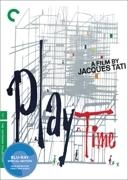
Jaques Tati's 'Playtime' showed the French filmmaker -- a master of physical comedy and synchronized sight gags -- at his absolute finest and most ambitious. After months upon months of filming and editing, he produced a singular masterpiece… and one that doomed his career.
There isn't much story to 'Playtime.' Sure, it involves Jacques Tati's famous M. Hulot character (played by the director), a bumbling fool who had already goofed his way through the earlier Tati works 'Mon Oncle' and 'M. Hulot's Holiday.' Hulot is always at odds with the ever-changing world of technology, so in 'Playtime,' Tati plops him into the middle of a futuristic (and almost wholly fabricated) Paris. We see Hulot at an immense office building, but we don't really know what he's there for - a job interview, perhaps? He roams around the office' cavernous interior, never finding the man he's there to meet.
Elsewhere in Paris, a group of American women in a tour group are whisked around the city. Occasionally, Hulot and the women bump into each other, or are at least in the same location. (The film has been broken down online into six loosely connected location-based sequences, which is about right.)
Tati shot 'Playtime' in glorious 70mm and believed in "democratic comedy," meaning that most of the shots are huge and that you, the keenly observant audience member, can pick out what elements of the frame are humorous. Hulot, always wary of advances in the modern world, shakes up the sleek invention of technology that Tati has created. Sometimes he does this physically (as when he crashes through a clear glass door) and sometimes by his mere presence. He seems to be giving off psychic wavelengths of destructive anarchy.
The movie is nothing less than a visual feast. (While there are some nifty audio cues, the movie is mostly dialogue-free.) If you've ever wondered what the unholy offspring of 'Shot in the Dark' and '2001: A Space Odyssey' (a film that was released the year after 'Playtime') might look like, this is it. It's just marvelous, in the purest meaning of the word - you will marvel at this thing. The amount of comic invention, the endless sight gags and mind-boggling coordination it must have taken. It's bold, ambitious, and while not completely successful on a narrative level (for all of its fun, it's probably overlong at 2 hours +), it's still an out-and-out masterpiece. The way he stages the scenes, using the entirety of the frame; the way he plays with color, light, placement - it all adds up to absolute genius.
To make the huge-scale movie, Tati literally had to build a small city, comprised of mammoth functional sets. (It was referred to as 'Tativille.') Just thinking about this scale of commitment, in a world where every other movie is filmed against a green screen and fussed over later, blows my mind. At the time it was thought that the film's producers would just sell the buildings when the film was finished, but they had unknowingly constructed Tativille along a tract of land that would soon be turned into a throughway.
'Playtime' was also a huge movie in terms of time - when all was said and done, between filming and post-production, Tati spent three years on shooting the movie and another nine months in editorial. And, with great ambition comes great risk. Upon release, 'Playtime' was ignored by audiences and frowned upon by critics and essentially ended Tati's once-promising career. (Like Francis Ford Coppola's similarly themed 'Megalopolis,' which was announced at the height of the mid-1990's 'X-Files'-induced sci-fi frenzy, Tati had a huge project about a futuristic city on the docket called 'Confusion.' And like 'Megalopolis,' it never got made.)
The film was severely edited and released, years later, in the United States to similar ambivalence. Finally, in 2002, an effort was made to reconstruct Tati's original vision of 'Playtime,' which is what we get here. Almost a half hour was reinserted, but still, twenty minutes from Tati's original cut remains lost. (To put it into context, Tati's original cut of this brilliant, beguiling movie, ran two minutes longer than the rambling Judd Apatow comedy 'Funny People.' Think about that.)
Thankfully, Criterion has now released the definition version of this wonderful film, for everyone to treasure.
Video Review
The amazing MPEG-4 AVC 1080p transfer (1.85:1 aspect ratio) on this 50GB Blu-ray disc is probably the closest anyone will get to that original 70mm presentation. And it is a doozy.
Remember the wide-eyed glory of those IMAX scenes on the 'Dark Knight' Blu-ray? Well, imagine that for an entire movie. It's nothing short of stunning.
Towards the beginning of the movie, there's this small, C-shaped piece of fuzz at the bottom of the screen. It wiggles around and is very distracting. Thankfully, that's an anomaly that only lasts a few minutes. Criterion's usual unparalleled amount of care and attention has been administered to this release. There's very little grain or smudges, and the expertly colored world of 'Playtime' remains intact. (There are very few reds, with the entire color palette is awash in futuristic grays.) There's a whole new depth to 'Playtime,' with sharp detail and deep blacks.
There are also no technical issues to speak of (no macro-blocking, artifcacts etc.), and (mercifully) no digital noise reduction applied. If you've seen previous 'Playtime' incarnations on home video, then you're in for a major upgrade. If you haven't seen the movie before, then you're in for a huge treat. I honestly can't imagine the movie looking any better.
Audio Review
Criterion provides two audio options, both of which would have been warmly endorsed by Jaques Tati (and both, in fact, were created by Tati for the film's original release): a French LPCM 2.0 track and an International Dolby Digital 2.0 Stereo mix. While both mixes contain portions of English (hello, those American tourist women weren't breaking out their French), but the international mix has more English. The entire thing seems like an afterthought, though. The reason Tati created two mixes was that he really wasn’t all that interested in the audio. The movie was a visual achievement, and he believed anyone could simply watch it and understand what's going on. I heartily agree. You could throw on the complete Daft Punk discography while watching 'Playtime' and get just as swept up in it.
According to the little booklet, "The soundtrack was remastered at 24-bit from the original stereo audio stems. Clicks, thumps, hiss and hum were manually removed using Pro Tools HD. Crackle was attenuated using AudioCube's integrated audio workstation." Sounds like a lot of care went into this audio mix, and you can absolutely tell.
The French LPCM 2.0 track is great, a delicately crisp and clean track with large physical gags getting the appropriate amount of dynamic punch. (Things sound really awesome in the dinner club.) It's not the most immersive track you'll ever hear, but the sounds of the futuristic city, and all the gadgets therein, really put you in the movie. Things buzz, chirp, and hum. And all the while, Francis Lemarque’s gorgeous score moves you along.
The International track is somewhat flatter and not recommended. Also, there are optional English subtitles.
Special Features
There is an essay included in the booklet, called "The Dance of 'Playtime'" by one-time Chicago Reader critic Jonathan Rosenbaum. All of the supplements were present on the recent two-disc standard edition, except this time all conveniently placed on one disc! Also, it should be noted that the film is Region-A locked.
- Terry Jones Introduction (HD, 6:17) This is a great and lively introduction by the Monty Python member, but it's not advised to watch before the movie. This is less an introduction than an epilogue, and should be treated as such, unless you've already seen the movie and want to get excited about the visual majesty you're about to revisit.
- Select Scene Commentary (HD, 46:44) This commentary, by British Film Institute historian Philip Kemp, seems a little dry at first, but then you start to realize that the only thing more fascinating than the movie is the way it was put together, and the track becomes absolutely indispensable. Highly, highly recommended.
- Au-Dela de 'Playtime' (HD, 6:30) This is a presentation of rare archival footage, with a script by Stephan Goudet, a Tati scholar, and narrated by Philip Kemp. You get to see the immensity of Tativille, and the borderline madness that it took to pull of 'Playtime.' Don't miss this, either.
- Tati Story (HD, 20:38) This is a really great, interesting, but too-short French documentary on Tati's life, with optional English subtitles. We get clips from his life and his films.
- Jaques Tati in M. Hulot's Work (HD, 49:28) This episode of the BBC Omnibus program, hosted by Gavin Miller, features an extended interview with the director. This is warm and engaging but wasn’t my favorite extra feature. Still, Tati is an unquestionable eccentric and genius and it's always nice to hear his thoughts.
- Tati at the San Francisco Film Festival (HD, 16:52) This is the kind of rare bit of business that only Criterion would think to uncover. It's an audience Q&A following the US premiere of 'Playtime' at the 1972 San Francisco International Film Festival. Albert Johnson is the moderator here, and there's some priceless back and forth with the audience. When someone asks how the film did financially, and they were obviously unaware that the film ruined him, Tati says, simply, "Let's just say that when I started the movie I had a house, and after the movie came out, I no longer have a house."
- Sylvette Baudrot (HD, 13) This is a cute little feature, with an interview from Tati's longtime script supervisor. There's a lot discussed here, mostly focusing on 'Playtime' and how Tati was such a detail-oriented director, his attempts to cut costs (like having life-sized cutouts of extras for far-away shots) etc. From the sounds of it, making the movie was equal parts maddening and fun.
- Cours du Soir (HD, 27:41) This 1967 "short" film, written by Tati and directed by Nicolas Rybowski, is funny enough, but lacks the visual invention of the things Tati actually directed. (Tati also stars, in a M. Hulot-like role.) While this is a nice inclusion, it is far from the cream of the crop.
Criterion's 'Playtime' disc is a must own. Rarely is a film this ambitious, visually stunning, and hilarious. It's a one-of-a-kind film that is not to be missed. Add to that a superb technical presentation and a wealth of engrossing extras, and this one really is a no-brainer. A few weeks go, I did my Best of the Year (so far) list, had 'Playtime' been available to me then, it would have been near the top.
